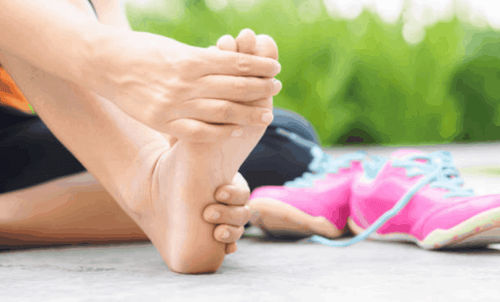Nội dung bạn đang tìm kiếm không có phiên bản tiếng Việt.
Vui lòng chọn tiếp tục để xem nội dung tiếng Anh hoặc đi đến trang chủ Tiếng Việt.
Rất xin lỗi về sự bất tiện này.
Lifestyle


What is Caprylic/Capric Triglyceride and Is It Safe?
Caprylic triglyceride is a natural ingredient that is commonly used in cosmetics. It has the ability to smooth the skin, is antioxidant, and can act as a preservative so that the active ingredients in cosmetics last longer.
View more

Exploring the 100m sprint technique
The 100m sprint, also known as short-distance running, is a popular event in sports competitions, including student and university tournaments. However, not everyone fully understands the proper techniques for the 100m sprint to achieve the best results and avoid unwanted injuries. Below is a guide to the correct 100m sprint technique.
View more
Latest articles

Striae on the Upper Arms: Important information to know
It is believedhas been observed that up to 80% of individuals experience striae in some area of their body/ In a recent study, 80% of the observed people experience striae in some area of their body. Striae on the upper arms may arise from physiological changes during puberty, rapid weight gain, or specific activities such as bodybuilding. If the striae are extensive and affect aesthetic appearance, you may consider employing various methods to reduce the visibility of striae on the upper arms in order to achieve a more desirable skin appearance.
View more

Symptoms of potassium deficiency
Potassium in serum helps maintain homeostasis. Low (hypokalemia) or high potassium (hyperkalemia) can lead to threatening symptoms. Potassium ions are essential for muscle contraction. In patients with episodes of low blood potassium, muscles may cease to function voluntarily, resulting in paralysis. However, not all paralysis is due to periodic paralysis. The article below will clarify the symptoms of individuals with potassium deficiency.
View more

WHAT NUTRIENTS IS THE BODY LACKING WHEN IT FREQUENTLY EXPERIENCES MUSCLE CRAMPS?
Many people wonder what deficiencies in the body might cause frequent muscle cramps, as they experience this issue and are concerned about their condition. In fact, there are various causes of muscle cramps, but if they occur often, it could indicate a deficiency in certain essential nutrients.
View more

22 Tips to Improve Your Running Speed and Endurance
If you have been running at a steady pace for a long time, you should consider improving your running speed and endurance. You can refer to the tips below to increase your speed and endurance when running.
View more

Persistent malaise: A condition not to be overlooked
Malaise is a general term used to describe a state of being unhealthy or experiencing discomfort without a clear cause. This sensation may arise from transient and non-serious issues. However, in some cases, it may be associated with chronic or more severe medical conditions that require professional assistance and treatment.
View more

How Many Calories Does Running Burn?
Running to burn calories has become a popular method for weight loss and muscle building. Reports show that running can burn more calories than any other physical activity. However, the exact number of calories burned through running cannot be precisely calculated. Below is some information to help estimate how many calories running can burn.
View more

Are horror movies bad for your mental health?
October is considered the month of horror in many countries, with pumpkin heads, creative costumes, fake blood and of course horror movies filled with suspense and gore.
View more

Is it normal if sweat doesn't taste salty?
Sweating is one of the body’s important excretory and temperature-regulating functions. In most cases, sweat tastes salty, so people often assume that is its natural taste. So, what happens if sweat doesn't taste salty?
View more

